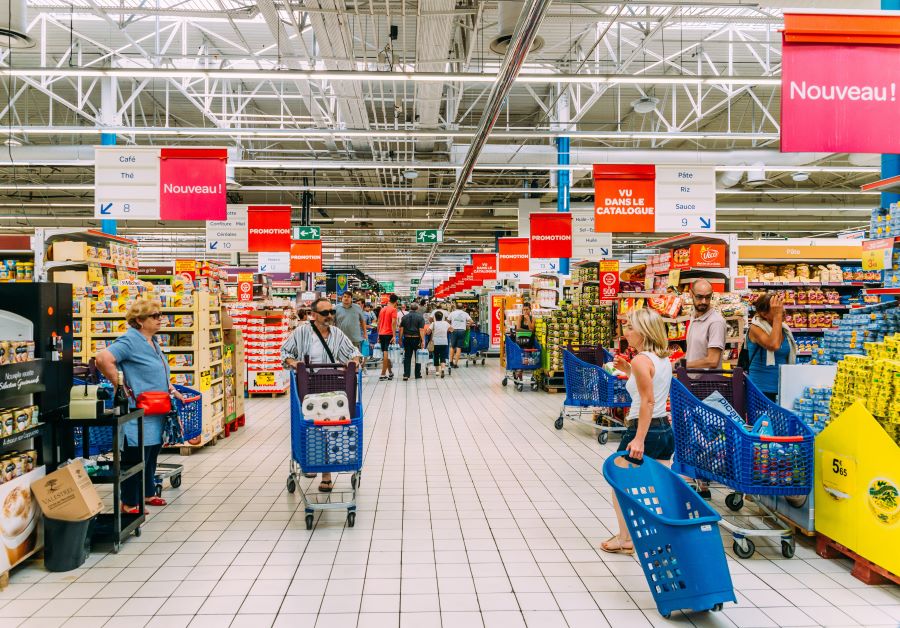
European retail and wholesale association EuroCommerce has submitted a complaint to the European Commission against a French law that will prohibit the discounting of certain food and drink products in supermarkets in France.
The legislation, known as the Loi Descrozaille or Egalim 3, was agreed by the French parliament in March and will come into play from March 2024.

Discover B2B Marketing That Performs
Combine business intelligence and editorial excellence to reach engaged professionals across 36 leading media platforms.
Speaking in a statement today (14 December), director general of EuroCommerce, Christel Delberghe said the law “prevents retailers and wholesalers from seeking better sourcing conditions in the European Single Market” and makes it harder to offer consumers “greater choice and more affordable prices”.
Delberghe added that it urged the Commission “to urgently address this violation of EU rules on choice of law and free movement with the French authorities.”
The new law proposes “to strengthen the balance in commercial relations between suppliers and distributors” and will allow for the application of French law to all negotiations between suppliers and buyers around products intended to be marketed in France.
It also stipulates that “Any dispute relating to their application falls under the exclusive jurisdiction of the French courts, subject to compliance with European Union law and international treaties ratified or approved by France and without prejudice to recourse to arbitration.”

US Tariffs are shifting - will you react or anticipate?
Don’t let policy changes catch you off guard. Stay proactive with real-time data and expert analysis.
By GlobalDataEuroCommerce has described the law as a significant breach of the EU’s regulations on free movement of “goods, services and establishment”.
It argued that applying French law and providing French courts with “exclusive jurisdiction for all commercial negotiations”goes against the bloc’s rules around “choice of law”.
As a result, the group believes the regulation will ultimately give more power to global manufacturing giants, who already reap reward from the Single Market through centralised production.
Compared to other sectors like pharmaceuticals and energy, FMCG is not provided with the same ability “to seek economies of scale in Europe”, added EuroCommerce.
At the start of this year, French retailers including Carrefour, the Casino group, Auchan, E.Leclerc and Cora collectively appealed the Loi Descrozaille, suggesting that it would undoubtedly bring worsening inflation.
They claimed that the bill “would enable major suppliers to unilaterally impose their tariffs on distributors”, which “Retailers will be forced to accept”.
Data collected by EuroCommerce shows that large suppliers enjoyed much larger operating margins than retailers in France across 2021 and 2022.
Beverage giants Diageo and Coca-Cola saw the largest margins in that period, holding around 28.5% and 25.4% respectively, while food conglomerates Unilever and Nestle saw 17.9% and 17.4%.
Ahold Delhaize and Tesco, the retailers with the largest margins across 2021 and 2022, booked comparatively smaller numbers of 4.3% and 4.2%.
If the Loi Descrozaille comes into force as planned, EuroCommerce has warned of a risk of further disruption to the Single Market, which it said is already happening due to large FMCG manufacturers’ usage of Territorial Supply Constraints (TSCs).
Multinationals can impose TSCs to prevent retailers and wholesalers from buying goods in an EU country outside of where its company is based or operates.
In 2019, Belgian brewing giant Ab-Inbev was hit with a €200.4m ($218.7m) fine from the European Commission for what it termed as “abuse [of] its dominant position on the Belgian beer market”.





